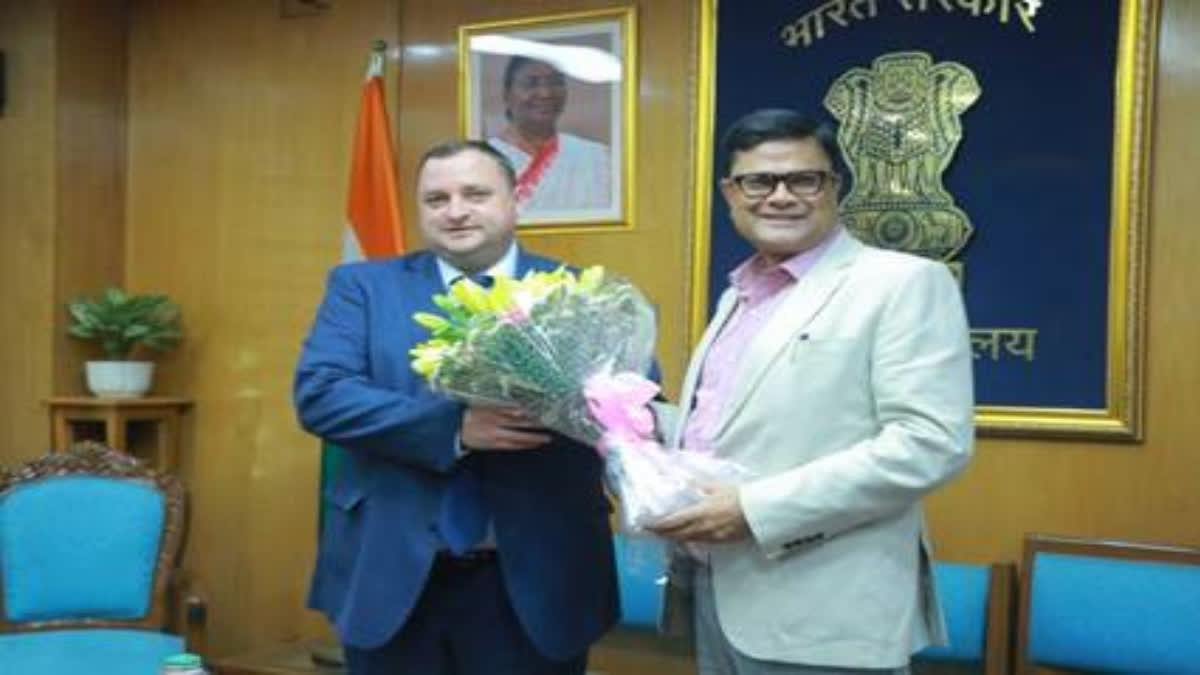New Delhi:The Russian Deputy Education Minister, Denis Gibrov, in an exclusive interview with ETV Bharat, said that India and Russia are exploring ways to provide the best medical education to Indian students as Moscow is among the top 10 countries that have been offering premium quality medical education.
He further noted that every year, the Russian government has been offering a quota to Indian students and currently to 250 students. Russia is also planning to increase the education quotas for Indian students, “We are also providing free accommodations in hostels”.
He made this remark at the first-ever India-Russia education summit that kicked off on a great note here in New Delhi. The Deputy Education minister further commented that "the forum will act as a platform for the students to explore ways and opportunities to study in Russian universities and help facilitate exchanges between educational institutions in Russia and India as well as contribute to the strengthening of the cultural and humanitarian ties”.
Russia continues to be a popular education destination for Indian students, particularly for those aspiring to study Medicine. According to official data, Russia receives 15,000-30,000 students from India every year.
Organised by the Russian Federal Agency Rossotrudnichestvo, the Russian House in Delhi, the Russian embassy in India and the Centre for International Education (Russia), the education summit witnessed the participation of more than 60 Russian universities, 100 senior officials of several Russian ministries and agencies. More than 400 Indian students participated in the forum.
The Russia-India Education Forum will feature a variety of events and activities designed to facilitate collaboration and exchange. Leading figures from the education sector will participate in panel discussions on various topics like curriculum development, innovative teaching methods, and the future of education.
These discussions will provide valuable insights and spark meaningful conversations. Representatives from universities, government agencies, and educational organisations can engage in focused discussions on specific areas of collaboration. These round tables can lead to the development of concrete action plans and partnerships.
Universities from both countries will showcase their academic programmes, research activities, and student life at exhibition booths. This allows students and parents to explore educational opportunities in Russia and India.
